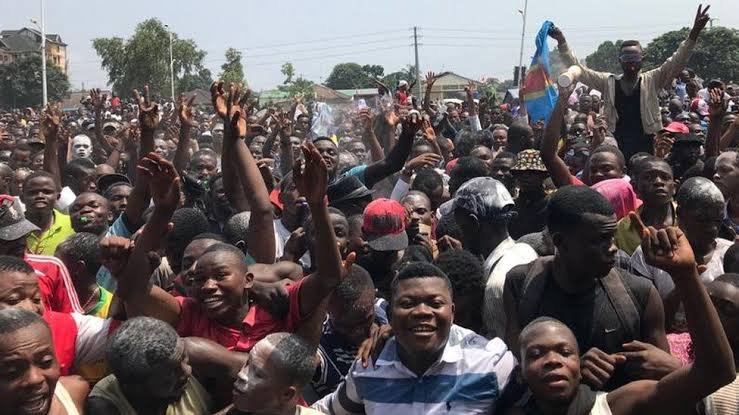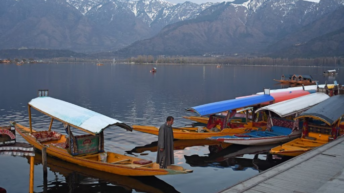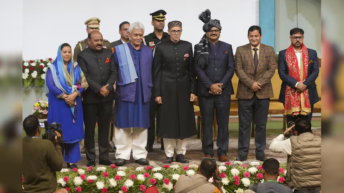|
Listen to article
Getting your Trinity Audio player ready...
|

Power is an aphrodisiac. Holding on to it is becoming fashionable. The worst example has been set by the so-called greatest democracy of all which has made the dance of the ridiculous a norm. In the recent US elections President Trump has until today refused to concede despite all objections, recounts and court cases having been settled. The customary and defined handing over and sharing of information and briefings for the incoming Administration have been sparse and scant, compelling President elect Joe Biden to publicly acknowledge the gaps and ill intent of the outgoing team. This has caused a sense of anxiety across the world for the simple reason that when the most powerful democracy in the world displays so little regard for its very essence others less convinced leaders will tend to see it as an encouragement for their entrenched ambitions to perpetuate their regimes. President Museveni of Uganda, who intends to seek a sixth term, did not hide his admiration for the US leader when he said “I love Trump” since Trump does not mind the autocrats like Kim Jong Un or for that matter even Xi Jinping whom he referred as his very very close friends. Fortunately US institutions are so far too strong to be wiped by the soloist ambitions of some.
Democracy, despite several shortcomings and less than perfect outcomes, is still the best form of government where the poorest and most disadvantaged has the power of his ballot. But for it to succeed, apart from robust election methodologies, trust in the system and representation it is imperative that a smooth transition of power happens at periodic intervals. And this has been the problem in a growing list of countries where either the election procedures are marred and manipulated, or results are said to be rigged, leading to protests and violence especially when the “Strong Man” claims an astounding victory and refuses to go.
India, the largest democracy, still can hold the candle to the world. It was only very recently during the Covid era that elections in the populous state of Bihar were held. Differing opinions, accusations, and myriad ways to entice the electorate are quite common but once the elections are held, votes counted and winners and losers declared a smooth transition takes place as prescribed by the constitution. Democracy howsoever rowdy it may be moves apace yet again. Indians wear the emblem of democracy with great pride and eventually salvage it even when it is led astray by some. It has been true even for the state of J&K where cross-border terrorism and separatist and extremist elements have failed to undermine the desire for democracy at the grassroot level. Recent District level elections held successfully attest to this underlying strength which has been nurtured by successive elections in stark contrast to the POK (Pak Occupied Kashmir). India no doubt has had its challenges and setbacks (such as Emergency of 1975) but its grassroot resilience and well entrenched institutions have held their own despite temporary aberrations.
The idea is not to flag the Indian example but to question the democracy project of some powerful countries as a part of their foreign policy when their own conduct leaves much to be desired. No wonder the number of people wanting ‘Benevolent autocracy’ in Africa has increased even if it is an oxymoron or paradoxical. Moreover, since the US is generally looked at as a source of inspiration by those hankering for democracy, President Trump’s Africa Policy was divested of that very element.
I recall my time in Nigeria and Ivory Coast ( Cote d’Ivoire) since both have been in the news recently . In Lagos/Abuja I witnessed the quest for power and an additional term bring down President Obasanjo (2004) from becoming another real Statesman in Africa especially as he was personally responsible to have brought in democracy in the country by paving the way for it. In Ivory Coast, President Houphouet Boigny (1980s), whom we fondly and respectfully called Papa Boigny had led the freedom struggle against the French and ruled for decades under his single party system. An agro-rich country saw its financial decline with pharaonic projects like the new capital at Yamoussoukro and its gigantic Cathedral inaugurated by the Pope at a time when declining cocoa and other commodity prices stressed the economy beyond redemption. Last year the Ivorian President Ouattara sought another term as per his claims under the 2016 constitution and won a huge mandate as the opposition boycotted the elections calling his 3rd term unconstitutional. Violence and a transition alternate government followed. Fortunately, former President Gbago (overthrown in 2011 and acquitted by ICC in 2019) and his Ivorian Popular Front party have now agreed to end the boycott and participate in the legislative elections in 2021 and position themselves for the 2025 Presidential elections which augurs well for this beautiful country.
In Africa, at least 16 nations have held elections in 2020. Nearly all of them raised some controversies or questions on the conduct of the polling and were often marred by violence and non -acceptance of results by the public and opposition. Sometimes the acceptance of results by the international community (Joseph Kabila in DR Congo) leads to further disenchantment. Ongoing fracas in the Elections in Central African Republic and the ensuing militancy said to be led by Former President Bozize , barred from contesting due to UN sanctions, and political violence provide a mirror image for many countries in the region where alternate power structures are created in the “Bullet vs Ballot “ syndrome . In North Africa, the Arab Spring decade has displayed the abundant desire of the people to rule for themselves.
There are several watchdogs and NGOs that try to measure the democracy index; prominent among them are Freedom House’s Freedom in the World index, and the Fraser Institute’s Economic Freedom of the World index as well as Billionaire Mo Ibrahim’s Index for African Governance (IIAG). These organizations account for several factors including human rights, property rights and free elections to determine the status of states as ‘free’, ‘partially free’, or ‘not free’. Not only frequency of elections in Africa, but also protests, violence and leaders clinging on to power affect the rating of the individual country. Despite the challenges, at least 68% ( 72% in 2012) of Africans prefer to live in open and freer societies, according to a recent poll conducted by Afrobarometer in 34 countries.
The Economist Intelligence Unit (EIU) has published its 2019 democracy index. Considering 50 African countries except for Seychelles, South Sudan, Somalia, and Sao Tome and Principe, the index gives a picture of the state of democracy on the African continent. It concluded that in 2019, democracy declined globally, especially in sub-Saharan Africa. Average score for the region fell from 4.36 in 2018 to 4.26 in 2019, the worst since 2010. As in 2018, only Mauritius ranks in the “Full Democracy” category, ahead of France and the United States which is indeed a great achievement. While about 16 African countries have relatively improved their score, 24 have recorded a decline in their performance. Several countries have either moved up or down the ladder of “authoritarian ‘to ‘flawed democracy’ to ‘hybrid democracy’ criteria. According to the EIU, this is due to the deterioration of the electoral process and political pluralism in many sub-Saharan African countries. Overall, seven African countries are ranked as “flawed democracies” (8 in 2018), 17 are hybrid (halfway between authoritarian rule and democracy), while the remaining 25 are classified as authoritarian.
It is easier to criticize a country or the continent for deficits especially when due to historic reasons and structural inequalities they have not been able to develop the right institutions commensurate with the infusion of democracy as perceived abroad and judged especially by the West. Moreover, underdevelopment and now Covid 19 are major challenges but it is imperative that Africa develops strong institutions and not strong individuals chasing power for it is better to have robust institutions (executive, legislative and judicial systems) and a culture of democracy to cater to the aspirations of the masses. Regional organizations like the AU have set high standards and often intervene through regional mechanisms to contain the culture of Coup d’état. Some external powers would do well to support the quest of Africans to decide their own destiny rather than supporting regimes that tend to perpetuate anarchy or tyranny in this rich African continent so that the distinction between ‘legal’ and ‘legitimate’ is blurred. As Africans have just completed their first economic integration effort in AfCFTA (Free Trade Agreement) time is ripe for building good governance by Africans for Africans, hopefully on the model of a rather exemplary democracy like those in Mauritius , India or even some western states with Afritude as the defining feature.






Add comment